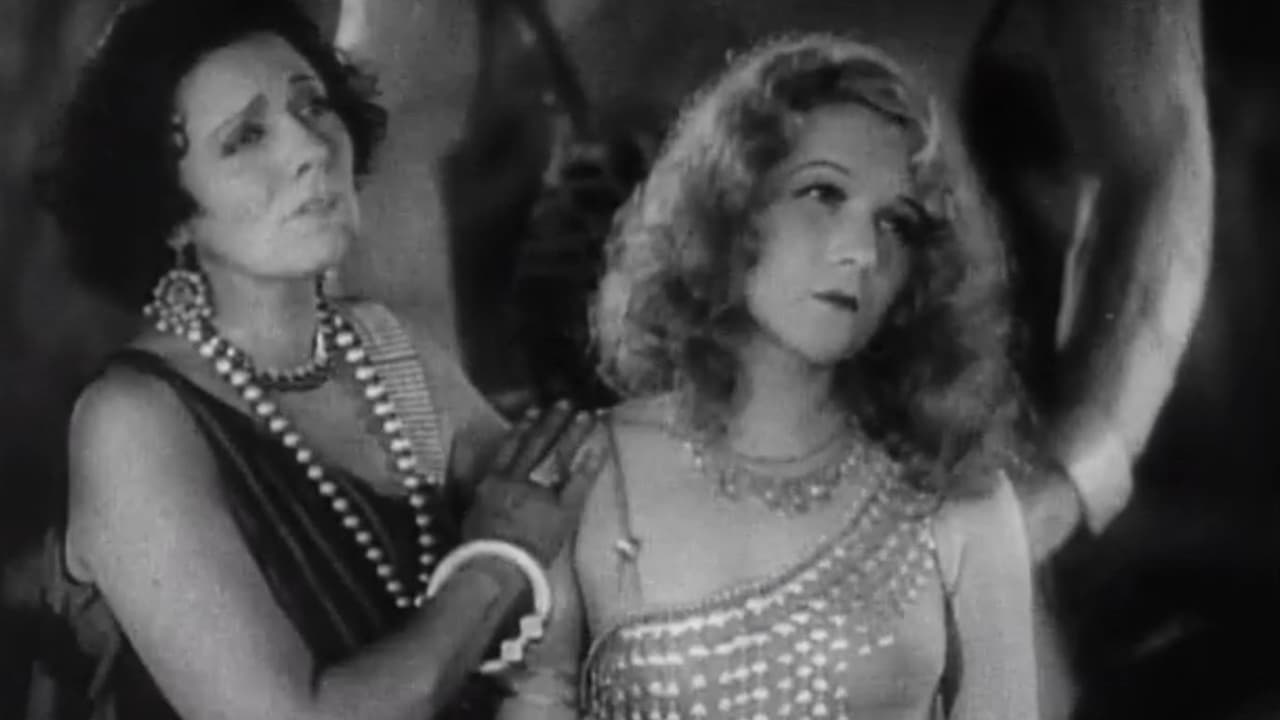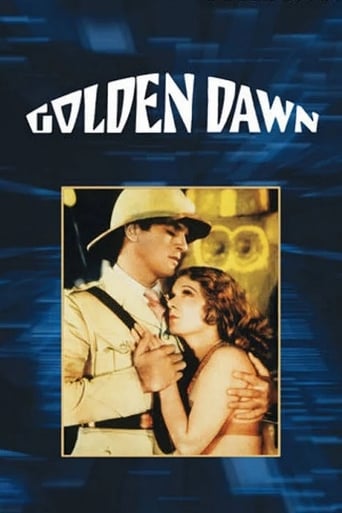

Absolutely the worst movie.
... View MoreThe best films of this genre always show a path and provide a takeaway for being a better person.
... View MoreIt's easily one of the freshest, sharpest and most enjoyable films of this year.
... View MoreThe film never slows down or bores, plunging from one harrowing sequence to the next.
... View MoreThe reviews of this one simply compelled me to give it a try; I wasn't disappointed. I love films made at the dawn of sound, and in this case also the dawn of taste, apart from often being entertaining they usually tell me a lot about who we were and who we now are. All white people back then apparently considered they were innately superior to all other races, nowadays gifted with movie-hindsight all races can all afford to be retrospectively superior to everyone in the primitive past, and in both cases, innocently. Where we will end up though is another matter – it even tells me something that the original New York stage play ran to 184 performances in 1927, and that this film in black and white (if you "know black from white") has actually survived Time when much worthier films were left to rot.Dawn is a white native goddess with a hazy past, white Britisher Tom Allen loves her purely but jet blacked-up native Shep Keyes lusts after her. It was still clunky old Noah Beery for all the make-up though – I just had to laugh at the blackened armpits of his shirt. He's worth watching singing to his whip too. The first song is shrilled out by a blackface Margaret Dumont lookalike – I looked out in vain for Captain Spaulding. Vivienne Segal and Walter Woolf King (pre-Marx's Lasspari) are excellent in their lead roles with every word and every lyric perfectly enunciated, every emotion delivered complete with Capital Letters. I loved Woolf's line at one point about not letting Segal sacrifice herself and "go through with this savage religious stupidity" – out of the mouths of babes! The songs, even when the lyrics make you sit up are in the main dull as ditchwater except for We Two (I was wishing for Eddie Cantor though) and the energetic A Tiger (the routine later bettered in King Of Jazz's Ragamuffin Romeo).It's exhilaratingly barmy doing Vienna in the jungle, but it must have played pretty old-fashioned and pointless even in 1930. So if you decide to hunt this down as it's probably banned from TV and watch it, keep it in the strict amber of context and you will have a unique experience no matter what your colour or prejudices. Unfortunately I can't say the same for Blazing Saddles (my personal bête noire) which was not innocent but malicious.
... View MoreWhat can I say about Golden Dawn? To describe it as jawdroppingly, breathtakingly, deliriously bad does not come close to doing it the justice it so richly deserves. Film aficionados describe it affectionately as The Second Worst Musical Ever Made (the first being the legendary Howdy Broadway), yet even that hallowed title cannot prepare you for the cheesy wonders in store. Racist, sexist...did I mention racist?...this is a film that must be seen to be believed, and even then you'll wonder if someone slipped you something. The film is based on the semi-hit stage musical of the same name and boasts musical numbers by Oscar Hammerstein, Jr., who really should have known better. From the moment Noah Beery steps on stage in embarrassing blackface to warble an ode to his whip, to the hallucinatory Hymn to Domestic Violence sung (badly) by Marion Byron, to the truly indescribable moment when Vivienne Segal belts out a showstopping "My Bwanna," the laughs just never stop. You'll laugh, you'll cry, you'll wonder who in the hell thought that making a pseudo-Viennese operetta about colonial Africa was a good idea, you'll...but you catch my drift. This movie is available on the Dawn of Sound laserdisc set, but I have decided to hold out for the Collectors Edition Director's Cut DVD with several language tracks, a Making of Golden Dawn documentary, and a whole lot of film-school twaddle on the commentary track. My advice to you is if you insist upon seeing this film-and I cannot recommend it to the faint of heart-do not do so alone! Make sure you are surrounded by friends, and are in a calm, familiar environment. Have oxygen ready and make sure your First Aid kit is fully stocked. It might be best to notify the authorities in advance. I ignored this sage advice for my first viewing and almost swallowed my own tongue. And do not even THINK about popcorn. Golden Dawn is a full-on three martini film. Better yet, just chug the gin from the bottle.
... View MoreI recently saw a book on bizarre movies featuring cheap space monsters, Bad Biker Boys, and Bad Babes in Bikinis. That's not bizarre, that's boring! Now Golden Dawn, here's a bizarre movie for you! Prisoners of war in the middle of the African jungle with the natives wanting to do a human sacrifice...and in the middle of it all we have Lupino Lane (bless his soul) doing a happy go-lucky jig. Unlike most cult films, this had a budget, and was expected to be taken as serious film making when it came out.Believe me, I can see why people would give this a low rating. But if you're into saying "Huh?" and wondering what people were thinking when they were creating something...this is for you.
... View More...What a grand time they would have sending up this putrid songfest, based on a stage musical that wasn't very successful to begin with. One of the last of the first wave of movie musicals, and surely one of the worst: a preposterous operetta about a light-skinned African princess and the white soldier who loves her. (It turns out she's white, too, so it's okey-doke. I'm not spoiling anything.) Howlingly racist even for its day, what with the united forces of the noble Old World benevolently keeping the peace among the "heathens" of Boer-controlled Africa. (Can this be the same Oscar Hammerstein who wrote "Show Boat" more or less concurrently?) Ineptly shot, paced, and acted, with a number of white actors in blackface, including an unforgivable Noah Beery, his dusky makeup slowly melting under the hot lights.All that said, it's a rare chance to see the great stage star Vivienne Segal in a lead, and the famous British comic Lupino Lane do a fun eccentric dance. The Kalman score is quite pretty, too, if you can tune out the lyrics. But unless you're a connoisseur of operetta or a lover of grotesquely bad movies, the whole thing is just about unwatchable.
... View More